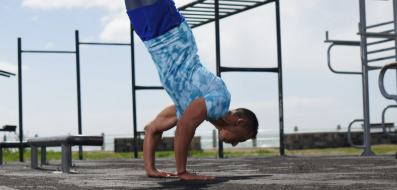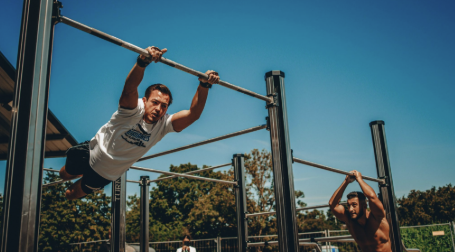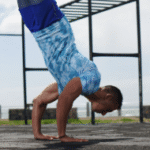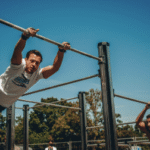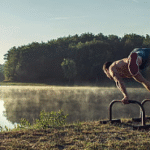Top Certifications to Look for in a US-Based Calisthenics Trainer: A Houstonian’s Guide
In the dynamic and demanding fitness landscape of Houston, choosing a personal trainer for a specialized discipline like calisthenics requires a discerning eye. While many trainers can lead a general workout, mastering bodyweight skills safely and effectively demands a unique and specific knowledge base. A certification is your first and most important quality check.
However, not all certifications are created equal. A top-tier calisthenics coach typically holds a combination of credentials: a foundational, nationally accredited personal training certification and a specialized, bodyweight-focused certification. This guide will break down what to look for in each category, ensuring you make an informed investment in your fitness journey.
Tier 1: The Foundation – Core Personal Training Certifications
Before a trainer can be a great calisthenics coach, they must first be a great coach. A foundational certification from a nationally recognized and NCCA-accredited organization is non-negotiable. The NCCA (National Commission for Certifying Agencies) is the gold standard for ensuring a certification program is legitimate and comprehensive.
These certifications guarantee the trainer has a solid understanding of:
Human anatomy and physiology
Biomechanics and proper movement patterns
Client assessment and program design
Safety protocols and liability
Look for one of these “Big Three” foundational certifications:
NASM (National Academy of Sports Medicine) – CPT:
Focus: Highly respected for its Optimum Performance Training (OPT) model, which emphasizes corrective exercise and functional movement. This is particularly valuable for Houston professionals who may have postural issues from desk work, as a NASM-certified trainer will be skilled at identifying and correcting imbalances before they lead to injury.
NSCA (National Strength and Conditioning Association) – CPT or CSCS:
Focus: The NSCA is the global authority on strength and conditioning. The Certified Personal Trainer (CPT) is excellent, but the Certified Strength and Conditioning Specialist (CSCS) is the gold standard for anyone training athletes or individuals serious about performance. A coach with a CSCS has a deep, science-backed understanding of program design for building strength and power, which translates perfectly to advanced calisthenics.
ACE (American Council on Exercise) – CPT:
Focus: ACE is renowned for its focus on behavior change and client-centered coaching. An ACE-certified trainer is skilled not just in exercise science, but in the psychology of motivation and habit formation, making them excellent partners for long-term success.
Tier 2: The Specialization – Calisthenics-Specific Certifications
This is what separates a general personal trainer from a true calisthenics specialist. A bodyweight-specific certification proves the coach has gone deeper, studying the unique progressions, techniques, and joint preparation required for this discipline.
Look for these top-tier calisthenics and bodyweight certifications:
PCC (Progressive Calisthenics Certification) by Dragon Door:
What it means: This is arguably the most recognized and respected calisthenics certification in the US. Developed by leaders in the modern calisthenics movement, the PCC curriculum is intensely focused on the art of progressive bodyweight training. A PCC-certified coach has been rigorously tested on their ability to teach and perform fundamental movements (like the push-up, pull-up, and squat) with perfect form and to guide clients safely through the progressions toward advanced skills.
WSWCF (World Street Workout & Calisthenics Federation) Academy Certification:
What it means: This is an internationally recognized certification from the governing body of competitive street workout. A WSWCF-certified trainer has a deep understanding of both the foundational strength aspects and the more dynamic, skill-based elements of calisthenics. This is a great credential for a coach who trains clients for performance and advanced skills.
Other Reputable Bodyweight Specializations (e.g., GymnasticBodies, Animal Flow):
While not purely “calisthenics,” certifications from programs like GymnasticBodies demonstrate a profound understanding of gymnastics-based strength training, which is the foundation for many elite calisthenics skills. Certifications like Animal Flow show expertise in ground-based, multi-planar bodyweight movement, which is excellent for building mobility and control.
Beyond the Paper: What Really Matters in a Houston Coach
A certification is your starting point, not your final decision. In a competitive market like Houston, you should also look for:
Personal Experience and Ability: Do they practice what they preach? A good calisthenics coach should be able to demonstrate the movements they are teaching with excellent form. They should be a living example of their methods.
Coaching Experience and Testimonials: Ask for success stories or testimonials from clients with goals similar to yours. A great teacher is not always the best performer, but they must have a proven track record of helping others succeed.
The Initial Assessment: A top-tier coach will never throw you into a workout on day one. Your first session should be a comprehensive assessment of your mobility, stability, and current strength levels. This is the mark of a true professional who prioritizes your safety and individual needs.
Communication and Teaching Style: Do they explain the “why” behind an exercise? Can they provide multiple cues to help you feel the right muscles working? The best coaches are excellent communicators who can break down complex movements into simple, understandable steps.
Conclusion:
When searching for a calisthenics trainer in Houston, your ideal candidate is a professional who has built their expertise in layers. They should have a foundational, NCCA-accredited certification that guarantees their knowledge of general fitness and safety, topped with a specialized calisthenics certification that proves their mastery of bodyweight training. Combine this with real-world experience and a teaching style that resonates with you, and you’ve found a partner who can safely and effectively guide you on your journey to mastering your own body.

Top Certifications to Look for in a US-Based Calisthenics Trainer: A Houstonian’s Guide
Route
Calisthenics Gym Houston Functional Bodyweight Training
Secondary phone: (346) 483-3195
Email: info@calisthenicsclubhouston.com
URL: https://calisthenicsclubhouston.com/
Monday 6:00 AM - 7:00 PM Tuesday 6:00 AM - 7:00 PM Wednesday 6:00 AM - 7:00 PM Thursday 6:00 AM - 7:00 PM Friday 12:00 PM - 6:30 PM Saturday 9:45 AM - 12:00 PM Sunday 3:00 PM - 5:00 PM

